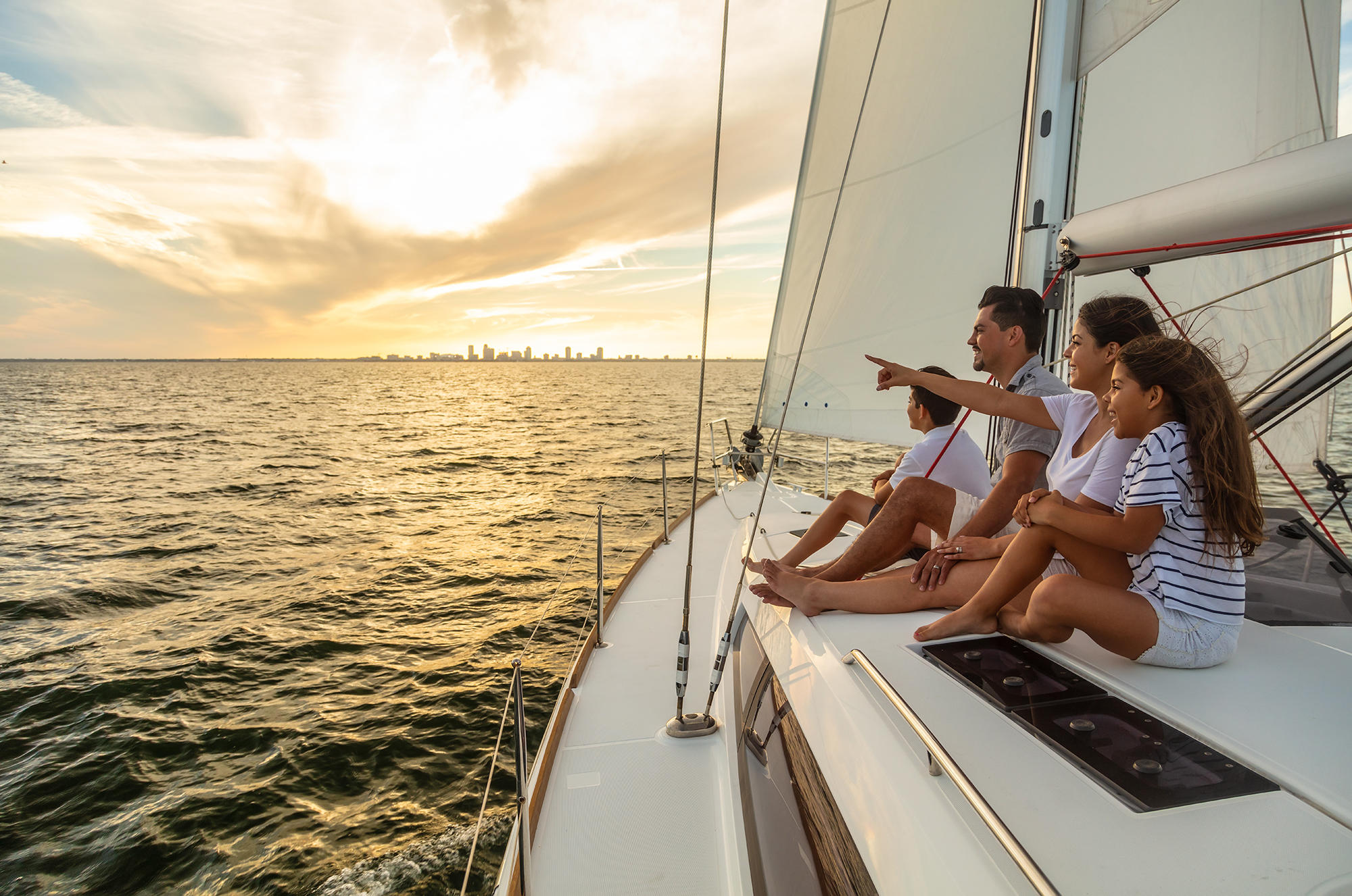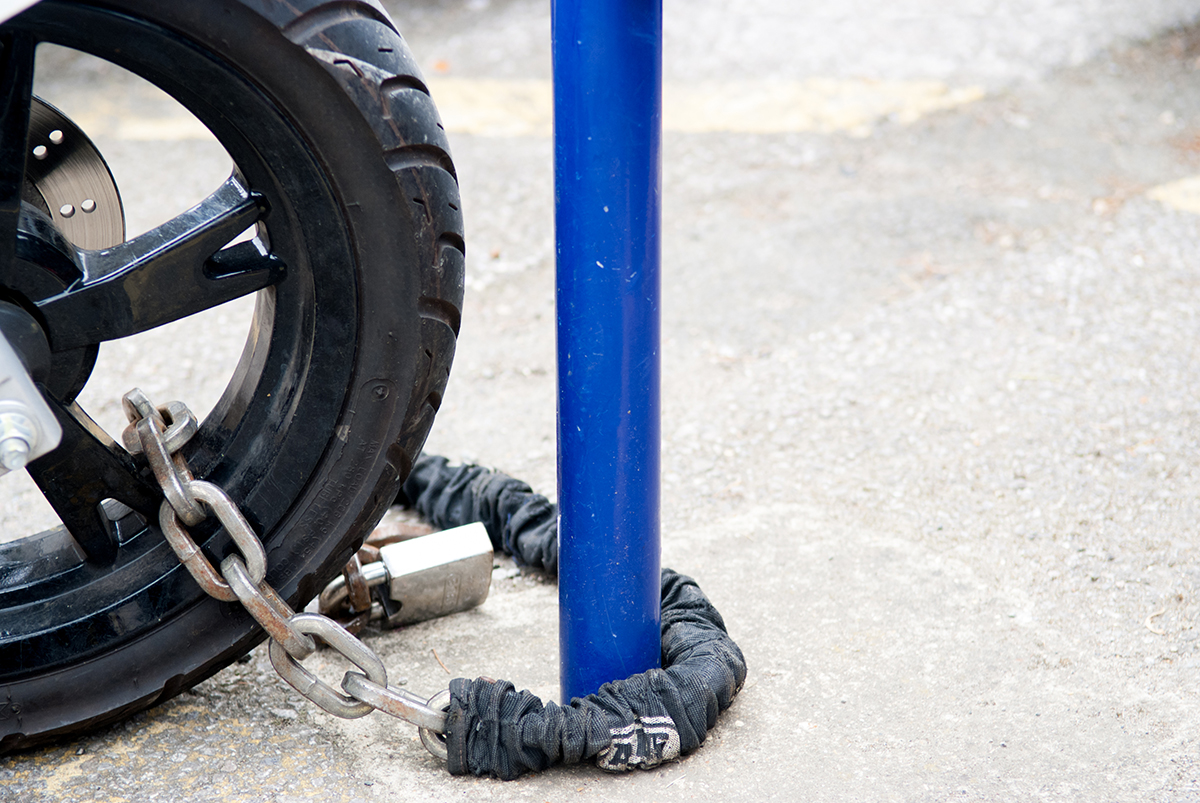Reduce the risk of accidents & injuries, & ensure your day on the water is as safe as it is fun with these boating safety tips
The sun is shining, the water is warmer, and you’re ready to set sail. But before you untie those mooring lines, it’s crucial to prioritize safety.
Whether you’re cruising out on the open ocean or having a relaxing day on the lake, these summer boating safety tips will help you and your fellow crew members avoid unnecessary risks and enjoy your time on the water to the fullest.
1. Don’t Leave the Dock Without a Life Jacket
Like wearing your seatbelt, a life jacket is the simplest and easiest way to protect yourself while boating.
It might seem like a no-brainer, but it’s all too common for people to forego this safety measure. Who wants to wear a life jacket while jumping off the boat or going for a swim anyway?
It may not be the most comfortable thing to wear, but the consequences of going without one can be life-threatening. According to the US Coast Guard, drowning was the cause of death in 75% of the fatal boating accidents that occurred in 2023.
Not too surprising of a statistic considering these accidents happened on the water, but here’s the kicker:
87% of those victims were not wearing a life jacket.
You never know what could go wrong, so keep your summer boating adventures safe and suit up with a working, well-fitting life vest.
2. Create & Go Through an Equipment Checklist
Before you leave shore, use the following checklist to ensure you have all the boating safety essentials:
- Enough life jackets for you and everyone on board
- Plenty of fuel to carry you through the day’s activities
- First-aid kit
- Working navigation lights and an extra flashlight or other light source
- At least two emergency signaling devices, such as air horns, whistles, reflectors, flags, or flares
- Satellite phone in case cell service becomes spotty or unavailable
- Documents, like your boating registration, fishing license, or other necessary paperwork for whatever activities you plan on doing
3. Share Your Plans With Trusted Friends & Family
Let a loved one know where you’re going, who you’re going with, and when you plan on returning. That way, if they don’t hear from you by the specified time, they can check in or contact emergency services if necessary.
Having a trusted contact onshore will give you the peace of mind of knowing that if something goes awry, they’ll get you the help you need.
4. Watch the Weather Forecast, & the Sky
Remember to check the weather before you set out and regularly throughout your day on the water. As frustrating as it can be, canceling your plans at the last minute is much safer than ignoring poor conditions and putting yourself and your loved ones at risk.
However, what starts out as a beautiful day can quickly turn south. You might have departed under clear skies, but if you’re not careful, you can get caught in a storm in a matter of minutes.
So, watch the sky carefully, and if you see dark purple clouds and lightning on the horizon, it’s time to call it a day.
5. Follow Navigation & Boating Safety Rules
Speaking on boating accidents, Captain Amy Beach, Inspections and Compliance director for the US Coast Guard, had this to say:
“The most frequent events involve collisions with other vessels, objects or groundings, which is why it is so important to keep a proper lookout, navigate at a safe speed, adhere to navigation rules and obey navigation aids.”
You heard her, folks. The best way to keep you, your loved ones, and your fellow boaters safe is to follow posted speed limits, right of way conventions, and other rules of the water. It only takes one slip-up to damage you or someone else’s boat, cause an injury, or worse.
6. Protect Yourself From Harmful UV Rays
It’s summertime. The last thing you want to do is ruin the next week of fun on the water by getting a bad sunburn.
To protect your skin from UV radiation, invest in some broad-spectrum sunscreen with an SPF rating of 15 or more, lather up liberally before exposing yourself to the sun, and reapply every couple of hours. Also, make sure to reapply whenever you sweat, go swimming, or dry off with a towel.
7. Be Considerate of Swimmers & Other Boaters
If you’re cruising or anchored near swimmers and other boats, be sure to give them plenty of room.
Also, reduce your wake as much as possible to avoid disturbing the waters. Too much wake can create dangerous conditions for swimmers and smaller boats.
8. Leave No Trace
Last but certainly not least, the World Economic Forum has projected that by 2050, plastic in the ocean will outweigh fish pound for pound.
The world’s oceans, lakes, and waterways don’t need any more trash than we’ve already polluted them with. Take care to properly dispose of any waste you create while boating.
If your boat doesn’t have a garbage can, bring bags or other containers to collect and store trash until you make it back to shore.
Boating Safety: A Little Preparation Goes a Long Way
When you put time and effort into the preparation for your summer boating adventures, you can focus more on what matters most: making memories.
And it doesn’t take much.
These eight boating safety tips are simple, easy to follow, and will ensure your time on the water is as low-risk as possible. Not only that, but they’ll also help you set the stage so that if something does happen, you’ll be ready to respond quickly and appropriately.
Have fun out there, be safe, and enjoy the rest of the boating season!





